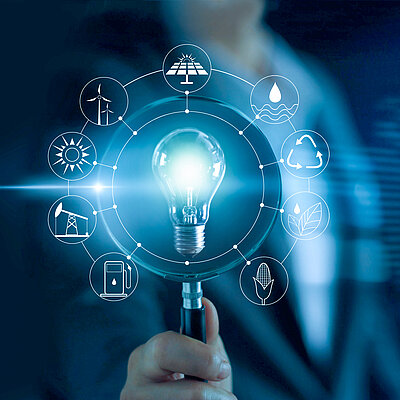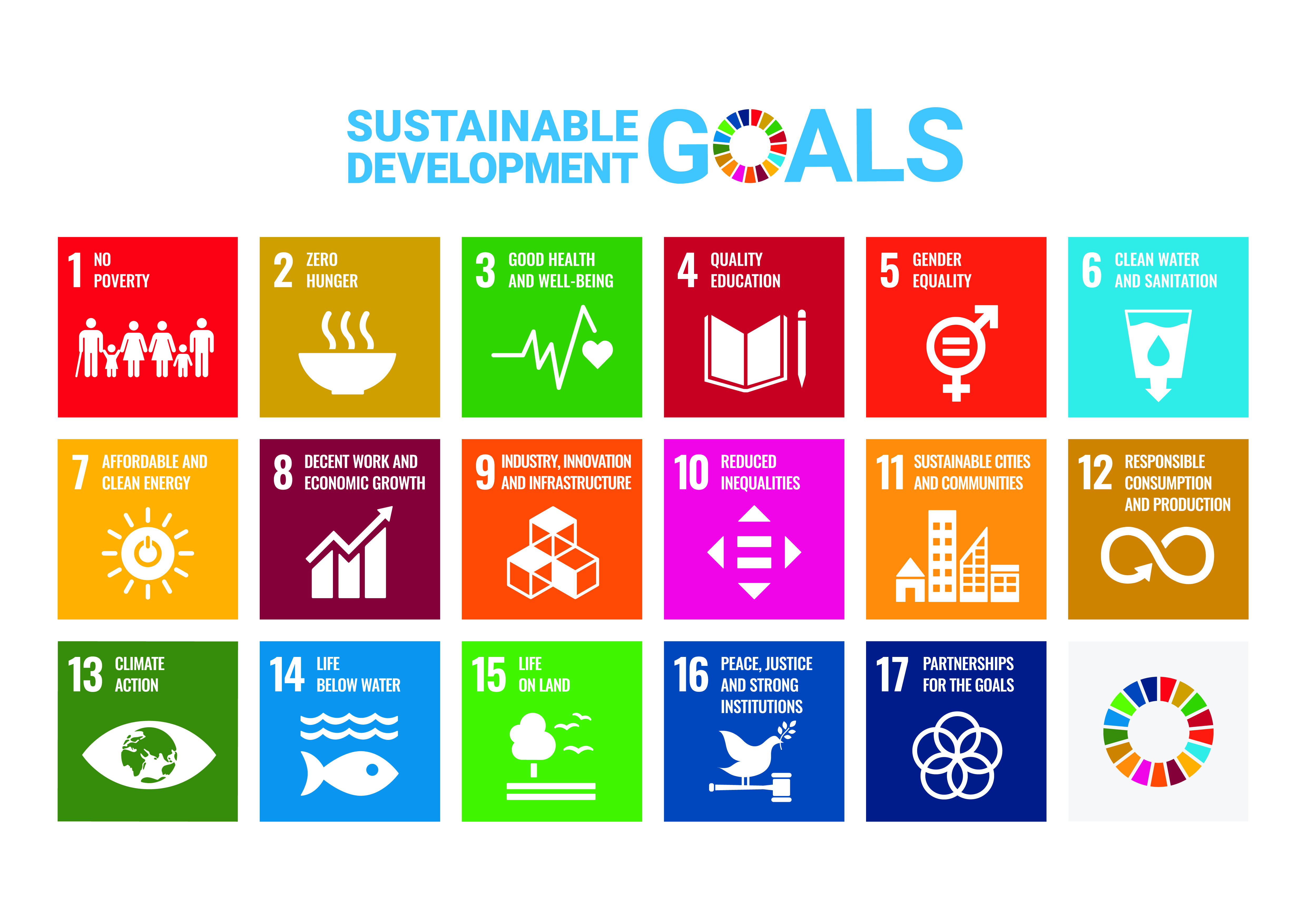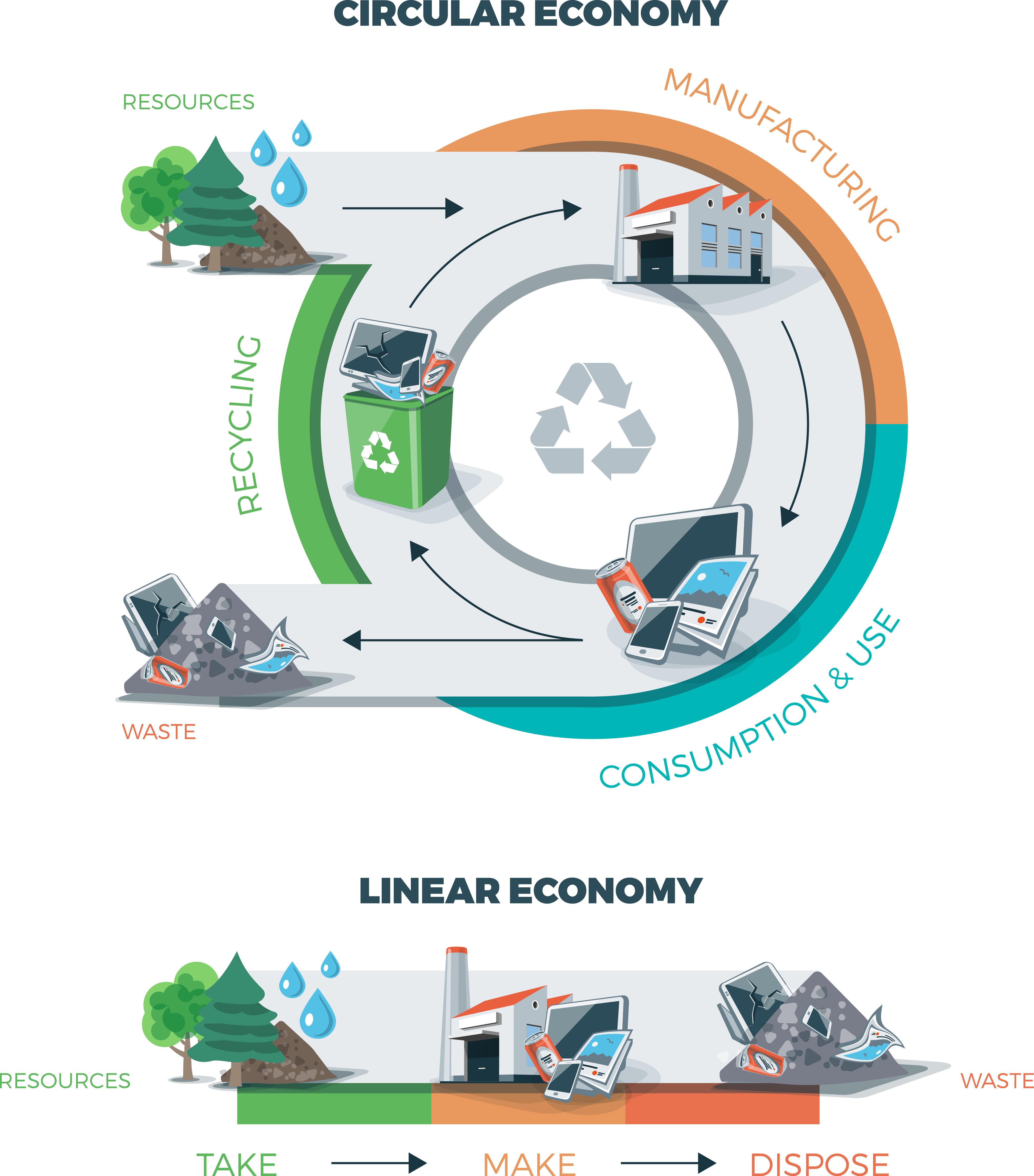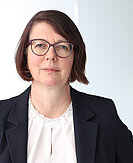
Sustainability
Sustainability and IT - does that fit together? Digitization can and will play a major role in sustainability research in the future.
With growing success and the opening up of ever new areas of application, the hunger for resources of digital technologies is increasing. We are facing up to this effect and examining ICT from a sustainability perspective. For example, simulations and forecasts in particular place sometimes enormous demands on computing power and require large amounts of energy and resources. Precisely because of the significant results and access from any smartphone, it is assumed that the use of digital technologies will continue to increase dramatically in the future. Cloud-based as well as block-chain-based applications require a lot of computing power, which has to be provided in data centers, with the prospect of increasing computing power.
Sustainable development through new technologies
New technologies are considered the main driver and guarantor for clean economic growth and sustainable development in the future. However, many raw materials contained in the material base are classified as "critical raw materials" by criticality assessments due to their economic importance and supply risk, and some are even classified as "conflict commodities" due to serious violations of human rights or international humanitarian law in connection with their extraction and trade. Although digital technologies can help here, for example to document and trace the origin and prevent possible conflicts in the future, it will not lead to the consumption of fewer raw materials.
Circular Economy Strategy
There is no doubt that artificial intelligence (AI) technologies, for example, have long since become part of everyday life, from the living room with Amazon Alexa to the cloud services of Google, Microsoft, Amazon, Baidu and Alibaba and their use in critical infrastructures such as efficient and sustainable energy network management. But this now also means that the system must be viewed holistically over several life cycle phases and is thus based on the Circular Economy Strategy.
The European Commission's "Circular Economy Strategy" has further raised awareness of the sustainable use of resources in the economy and society. Political measures aim at reducing the environmental impact of old products or reducing negative influences in the value chain, e.g. in the trade with conflict minerals (EU regulation on the fulfillment of due diligence obligations in the supply chain of so-called "conflict raw materials"). With regard to products at the end of their life cycle, the waste hierarchy focuses on re-use and recycling as preferred strategies over recovery or landfill. In line with the circular economy, it should be to use digital technologies to reuse and process more raw materials or products and to use them longer as used parts. This is by no means limited to the field of consumer goods, but also reaches into the field of sustainable mobility (e.g. raw materials for battery technologies and their recycling) and into the field of renewable energies (e.g. share of critical raw materials in renewable energy technologies and their recovery).
OFFIS therefore deals with the use of digital technologies for environmental and health protection as well as with the improved efficiency of the technology itself (Green IT).
Sustainability goals
At the global level, the 17 sustainability goals published by the United Nations therefore play a major role. The United Nations' Agenda 2030 is an expression of a new quality of policy: everything should be considered and addressed with a view to sustainable development. In contrast to previous programs on sustainable development, the Agenda applies equally to industrialized countries, emerging economies and developing countries. These 17 sustainability goals have therefore also been incorporated into the German government's strategy. The German Advisory Council on Global Change issued an expert report on "Our Common Digital Future" and made concrete research recommendations in the context of sustainable digitization, or is currently requesting an open statement at international level.
OFFIS also bases its research on the 17 sustainability goals, such as health and well-being, high-quality education, affordable and clean energy or sustainable cities and communities. Sustainable consumption and sustainable production will also receive more attention in the future.

Persons 
A
B
D
H
K
L
M
S
V
Projects 
2024
2023
Circular Integration of independent Reverse supply Chains for the smart reUse of IndusTrially relevant Semiconductors
Duration: 2023 - 20252022
Edge Datenwirtschaft in der nachhaltigen automatisierten Fertigungswirtschaft
Duration: 2022 - 2026Duration: 2022 - 2025
2021
WärmewendeNordwest – Digitalisierung zur Umsetzung von Wärmewende- und Mehrwertanwendungen für Gebäude, Campus, Quartiere und Kommunen im Nordwesten
Duration: 2021 - 2026
Cross-border Health Data Compass as Basis for Comparative Studies (CHDC, SP1) | Teilprojekt von: Comparison of healthcare structures, processes and outcomes in the Northern German and Dutch cross-border region. (Phase I. CHARE-GD I)
Duration: 2021 - 20242020
Duration: 2020 - 2024
Resilience Monitoring for the Digitization of the Energy Transition
Duration: 2020 - 2024
Abfallverbrennungskessel 4.0 - Digitalisierung und ganzheitliche Betriebscharakterisierung von Dampferzeugern in Abfallverbrennungskraftwerken
Duration: 2020 - 2023 Publications 
2026
Tobias Hoiten, Maria Fernanda Davila Restrepo, Alexandra Pehlken; 01 / 2026
Alessandro Fontana, Siro Dell’Ambrogio, Veronica Dosi, Simone Fasola, Giuseppe Landolfi, Christian Trisolini, Antoinette van Schaik, Markus A. Reuter, Lisa Dawel and Alexandra Pehlken; 01 / 2026
Lisa Dawel, Mattia Calabresi, Francesca Lazzari, Aleksandr Bystrov, Ole Meyer, Felix Schmedes, Antoinette van Schaik, Julien van Damme, Markus A. Reuter, Alexandra Pehlken; 01 / 2026
2025
Alt, Bast, Babel, Buitmann, Creutz, Dartmann, Ehaus, Engel, Gast, Großesse, Guldner, Jahnke, Jilg, Körner, Leskow, Mundorf, Naumann, Pehlken, Schacht, Schick, Schlagenhauf, Schultheis, Schörner, Straub, Strüker, Traphöner, Weiher; Juni / 2025
Paolo Rosa et al; 12 / 2025
Danila Valko and Kristin Thompson; Sustainable Development; November / 2025
Pehlken, Alexandra and Meyer, Ole and Dawel, Lisa; Procedia CIRP; 2025
Arias Mendez, LC; Caballero Zafra, SA; Florez Cortes, DF; Marquez Torres, JS; Torio, H; Pehlken, A ; 14. BUIS-Tage 2025 – Smarte und Nachhaltige Infrastrukturen; Juni / 2025
2024
Yu, Tong and Shakeri, Gözel and Koelle, Marion; Proceedings of the 13th Nordic Conference on Human-Computer Interaction; October / 2024


